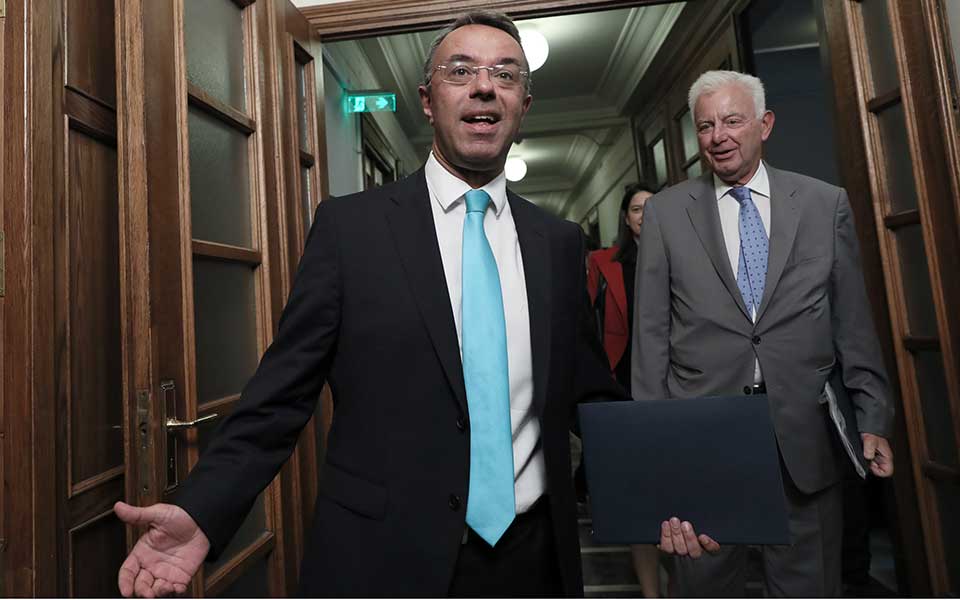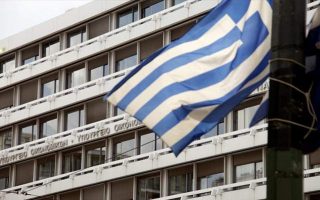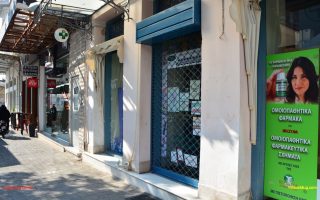Moderate contraction of 0.9% in Q1

The coronavirus measures that were introduced in late February and led to a lockdown in the second half of March were enough to turn the gross domestic product data for the entire first quarter of 2020 negative – albeit at a significantly slower rate than in the rest of the eurozone – according to data issued on Thursday by the Hellenic Statistical Authority (ELSTAT).
The figures showed an annual economic contraction of just 0.9% in January-March and quarterly shrinkage of 1.6%, compared to 3.2% and 3.8% respectively for the euro area.
“This illustrates that the economic plan of the New Democracy government and its application are in the right direction,” said Finance Minister Christos Staikouras, predicting that eventually “we will overcome the crisis with the least possible social and economic cost.”
The relatively mild contraction of the economy in Q1 “is related to structural parameters, such as the relatively small degree of dependence on exports and on international value chains, and the favorable expectations created before the outbreak of the coronavirus crisis,” explains Tassos Anastasatos, chief economist at the Eurobank group.
“However, the impact on sectors sensitive to international unrest, mainly tourism and transport, will become evident at some delay. We will therefore have a safer estimate about the depth of recession this year in September,” he adds.
The limited contraction of the GDP, compared with other countries, “reflects the momentum the Greek economy had developed in the year’s first two months,” argues Nikos Magginas, chief economist at National Bank.
This picture is certain to change dramatically in the second and third quarters, when the expected decline in tourism is factored in. Analysts say the baseline scenario points to a recession of between 5% and 10%, and this is vindicated by the Q1 data.
The analysts note that the extent of the contraction in Q2 will depend on the normalization of demand after the gradual reopening of the economy in May, while tourism is considered a complete write-off for this quarter.





